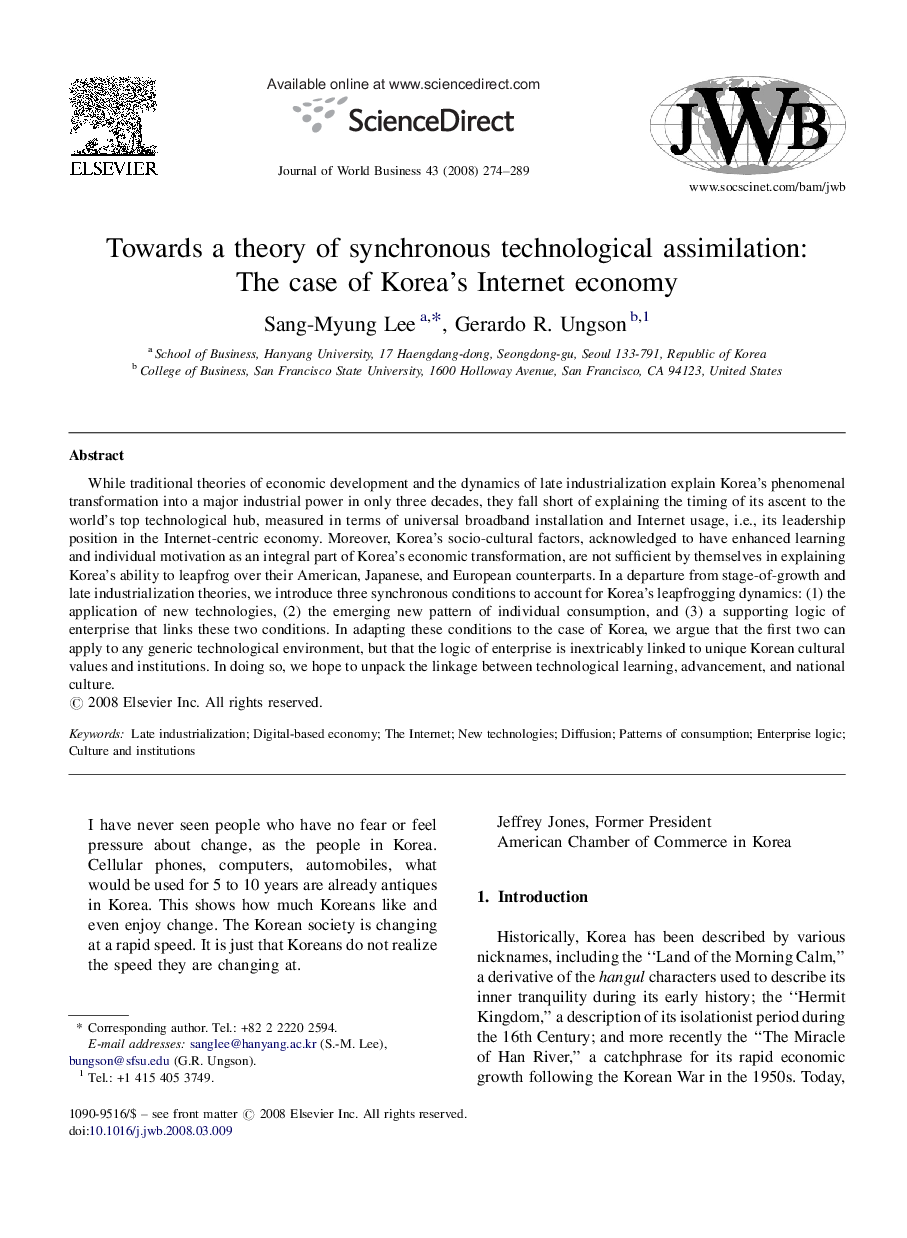| Article ID | Journal | Published Year | Pages | File Type |
|---|---|---|---|---|
| 1002270 | Journal of World Business | 2008 | 16 Pages |
While traditional theories of economic development and the dynamics of late industrialization explain Korea's phenomenal transformation into a major industrial power in only three decades, they fall short of explaining the timing of its ascent to the world's top technological hub, measured in terms of universal broadband installation and Internet usage, i.e., its leadership position in the Internet-centric economy. Moreover, Korea's socio-cultural factors, acknowledged to have enhanced learning and individual motivation as an integral part of Korea's economic transformation, are not sufficient by themselves in explaining Korea's ability to leapfrog over their American, Japanese, and European counterparts. In a departure from stage-of-growth and late industrialization theories, we introduce three synchronous conditions to account for Korea's leapfrogging dynamics: (1) the application of new technologies, (2) the emerging new pattern of individual consumption, and (3) a supporting logic of enterprise that links these two conditions. In adapting these conditions to the case of Korea, we argue that the first two can apply to any generic technological environment, but that the logic of enterprise is inextricably linked to unique Korean cultural values and institutions. In doing so, we hope to unpack the linkage between technological learning, advancement, and national culture.
